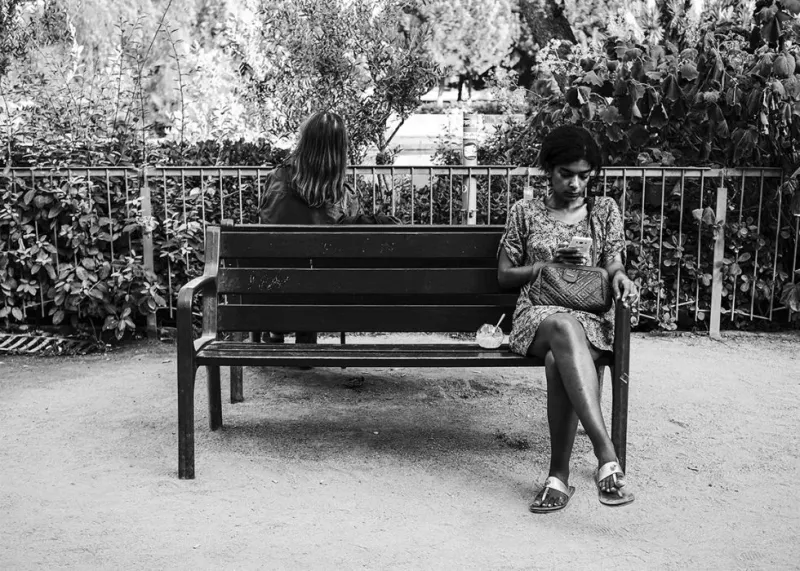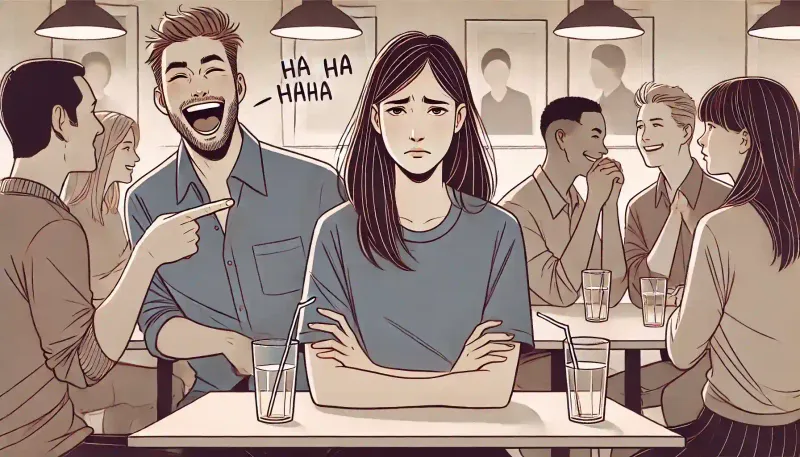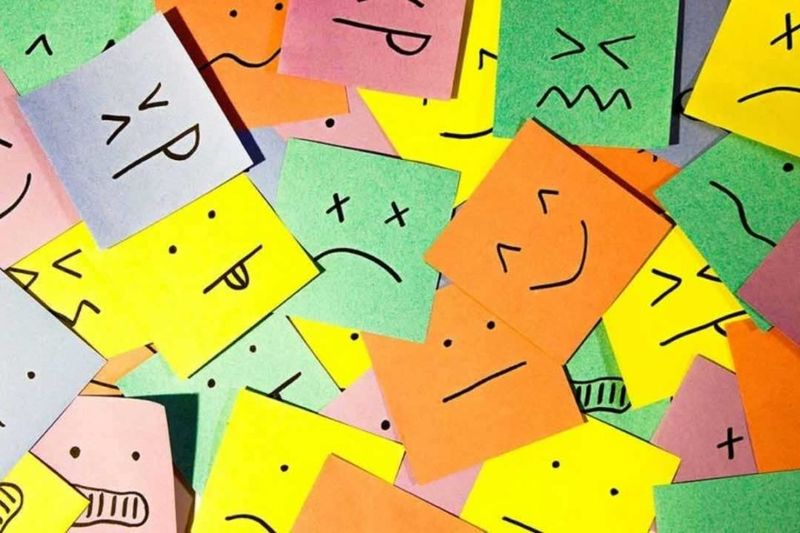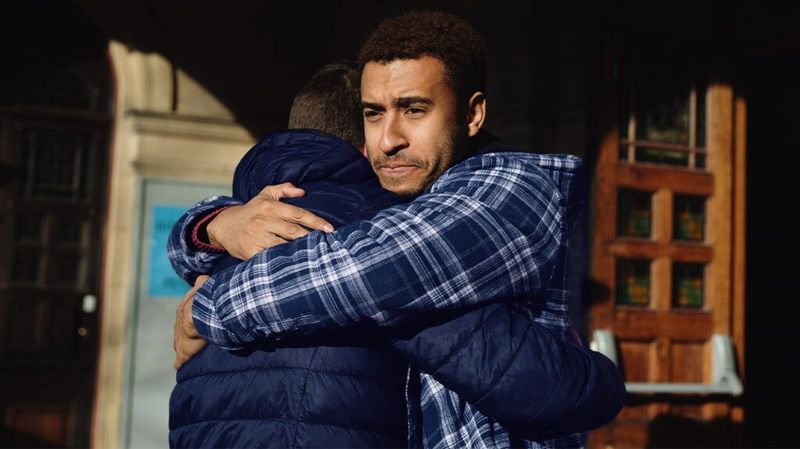18 Signs You Might Be Lacking Empathy in Your Life (and Why It Matters More Than You Think)
Empathy isn’t just about handing out sympathy cards or nodding along when someone shares their drama. It’s the real-life glue that keeps friendships, families, and even random group chats from falling apart. When you’re tuned in to how others feel, you actually build deeper connections.
But let’s be honest—sometimes we miss the mark. We get so caught up in our own stuff that we forget to check in with everyone else’s emotional weather. And when empathy takes a backseat, so do our closest relationships.
This isn’t about shaming anyone (seriously, who hasn’t zoned out during a friend’s emotional rant?), but about noticing those sneaky habits that might be holding us back. Ready for some real talk?
Here are 18 subtle (and not-so-subtle) signs you might be struggling with empathy—not to call you out, but to help you grow even more.
1. “That’s Not a Big Deal” Syndrome

Ever catch yourself blurting out, “That’s not a big deal,” when someone’s on the verge of tears? You might think you’re helping by minimizing their pain, but all it does is make their struggle feel small.
Dismissing how someone feels doesn’t spark comfort or resilience; it just makes people want to keep their distance. It’s like telling someone who tripped, “You didn’t fall that hard.” Ouch.
If you notice people stop confiding in you, this habit might be a big reason why. Even if you don’t understand the fuss, remember—if it’s a big deal to them, it deserves your respect. Validation matters. Check yourself before you wave off someone’s storm with a shrug. It’s not about agreeing, it’s about showing you care enough to listen without judgment.
2. Venting Feels Like a Chore

There’s an unspoken art to listening when a friend goes on (and on) about their bad day. If you find yourself counting the seconds or silently wishing they’d get to the point, you’re probably missing a key piece of emotional connection.
Feeling “burdened” when someone opens up isn’t just about being busy—it can signal emotional walls being built. Nobody expects you to solve all their problems, but acting annoyed or impatient makes you look emotionally unavailable.
If every vent session feels like a pop quiz you didn’t sign up for, it’s time to reflect. True support means showing up, even when the topics are repetitive. Next time your friend starts to spiral, try listening without secretly plotting your escape. You might discover your relationships feel lighter, not heavier, when you show up fully present.
3. Surface-Level Conversations Only

You know that awkward moment when you realize you don’t actually know how your friend’s feeling—you just know what TV shows she’s into? Keeping every chat at “How’s work?” or “Any plans this weekend?” is safe, but it’s also emotionally flat.
If you never ask follow-up questions or dig a little deeper, you might be coasting through relationships instead of connecting. Small talk has its place, but never going beyond it can leave people feeling unimportant.
It doesn’t mean you need to stage a therapy session at brunch, but a genuine “How are you, really?” can work wonders. If people seem distant or uninterested, maybe it’s time to check whether you’re really connecting—or just sticking with surface-level scripts.
4. Advice Machine Mode

Raise your hand if you’ve ever wanted to jump in with a “fix” before your friend even finishes their sentence. Coming in hot with advice can feel productive, but sometimes people want ears, not answers.
If you’re always the problem-solver and rarely the patient listener, you might miss out on true empathy. It’s not about never helping—it’s about pausing before you start fixing.
Advice can be helpful, but too much of it can make others feel unheard or brushed aside. Next time you’re tempted to hand out solutions like candy, try holding back. Ask, “Do you want advice or just someone to listen?” It’s a small switch that can change everything.
5. Walking in Different Shoes? Not So Much

“I don’t get why she’s so upset—it wouldn’t bother me.” Sound familiar? Struggling to see things from someone else’s perspective is a classic empathy-blocker.
If your first reaction is to compare their feelings to how you’d react, you’re probably putting your own filter on everyone else’s emotions. That’s not how connection grows.
Instead, curiosity is key. Ask yourself, “Why does this matter to her?” even if it wouldn’t faze you. Relationships deepen when we stretch our understanding, not just our opinions. Let yourself be a little uncomfortable—it’s a sign you’re growing.
6. Feelings on Trial

Ever catch yourself secretly labeling emotions as “dramatic” or “irrational”? Judging feelings shuts down honest conversations and keeps people at arm’s length.
If you find yourself rolling your eyes (even just internally) at someone’s reactions, it’s worth asking why. Emotions aren’t always logical, but that doesn’t mean they’re any less real.
Instead of acting like the judge in someone else’s emotional courtroom, try letting people feel what they feel. Validation is free, and it goes a long way. Your relationships—and your own emotional well-being—will be better for it.
7. Sorry? Only for Facts, Not Feelings

Apologies aren’t just for when you spill coffee on someone’s white shirt. If you only say sorry when you’re technically wrong, but skip it when someone’s hurt by your words, you’re missing a major empathy cue.
Saying, “I didn’t mean to hurt you” isn’t the same as acknowledging the actual pain. People crave real validation, not loopholes.
If your apologies always sound like, “I’m sorry you feel that way,” check yourself. True empathy means caring about impact, not just intent. Next time, try a genuine, “I’m sorry for how that made you feel.” It’s more powerful than you think.
8. Eye Rolls for the Sensitive Crowd

The next time you catch yourself mocking someone for being “too sensitive,” pause and check your vibe. Rolling your eyes or making jokes about someone’s big feelings isn’t tough love—it’s emotional dodging.
Empathy means adjusting, even if it feels awkward. Nobody wants to be the butt of a joke when they’re already raw.
If your go-to move is sarcasm when things get emotional, it might be time to swap in a little compassion. A tiny shift can make people feel safe instead of silly. Trust me, your friendships will thank you.
9. Freeze When Tears Appear

Some people are natural comforters, while others want to run for the hills at the first sight of tears. If you instantly freeze or awkwardly change the subject when someone gets emotional, you might be uncomfortable with vulnerability.
You don’t need to have all the right words—just being present can mean the world. Emotional moments aren’t about fixing; they’re about holding space.
Next time the waterworks start, try to stay put (at least for a beat). You might surprise yourself at how much comfort you can offer, just by not bolting. Vulnerability isn’t contagious, but kindness is.
10. Truth Bombs with No Cushion

“I just tell it like it is.” Sound familiar? Honesty is great, but there’s a fine line between being direct and being emotionally careless.
If your version of truth-telling always leaves someone feeling bruised, it might be time to add a little softness. Compassion isn’t about sugarcoating—it’s about remembering that words have weight.
Try checking in with your friend after a hard truth: “Hey, I know that was blunt—are you okay?” Sometimes, the delivery matters as much as the message. Empathy softens the blow, and that’s a good thing.
11. Impatience with Grief’s Timeline

Grief and trauma don’t come with expiration dates. If you’re frustrated because someone isn’t “bouncing back” on your schedule, you might be putting your own comfort first.
Empathy is about allowing the mess, the pauses, and the slow comeback—not rushing things along. Pushing someone to “get over it” rarely helps and often adds another layer of pain.
Give people space to heal on their own time. Your presence is more valuable than any pep talk. Sometimes, the most caring thing is simply waiting beside them in the dark. Patience is empathy in action.
12. Main Character Syndrome

Every conversation turns into your story hour? If you find yourself constantly steering talks back to your own experiences, you might be missing cues that someone else needs the spotlight.
Empathy means letting other people be the main character sometimes. It’s less about your “I know exactly how you feel” and more about giving others space to share without interruption.
Try listening all the way through, without topping their story. You’ll be amazed at how much deeper your connections feel when you resist the urge to star in every scene. Sometimes, the best support is just holding space.
13. Missing the Unspoken

Not everyone says what they mean out loud—sometimes, their body language or tone tells the real story. If you’re constantly missing hints that someone’s uncomfortable, you might be out of sync emotionally.
Empathy means paying attention to the stuff that’s not spelled out. Missed cues can leave people feeling invisible or misunderstood.
Next time, try to notice the crossed arms, the sighs, the subtle glances. Tuning in to the unspoken shows you care enough to notice the details. Your friendships will feel safer and more welcoming, promise.
14. Curiosity Goes Missing When You’re Called Out

When someone tells you that you’ve hurt them, does your guard fly up? Getting defensive (“That wasn’t my intention!”) is a sign that empathy’s on vacation.
Empathy invites curiosity, not argument. Instead of rushing to explain yourself, try asking, “Can you help me understand how that felt for you?”
It can be hard to hear tough feedback, but connection always wins when you choose curiosity over blame. Your relationships will thank you for the effort to grow, even if it feels awkward at first.
15. Struggling When Feelings Don’t Make Sense

You don’t have to “get it” to support it. If you find yourself frustrated by emotions that don’t make logical sense to you, empathy might be running low.
It’s easy to dismiss what you don’t personally relate to, but that’s not the point. Validation means saying, “I see you’re hurting,” even if you can’t walk the same road.
People aren’t looking for agreement, just acknowledgment. The next time something feels foreign, try offering support anyway. It’s a small gesture that can mean everything.
16. Feeling Like an Emotional Outsider

If you often feel disconnected or like a background character in your own relationships, low empathy could be part of the problem. Emotional distance makes it hard to form real bonds.
People pick up on your availability (or lack thereof) and might slowly drift away without ever saying why. It’s not always about being “too sensitive”—sometimes, it’s about not showing up emotionally.
Try checking in with yourself: Are you open to others’ feelings, or keeping things surface-level? The more you practice empathy, the closer your relationships can become.
17. Tough Love Overload

“People just need to toughen up.” If that’s your motto, you might be shutting down emotional growth in others—and yourself. Empathy isn’t about making everyone stronger; it’s about making space for feelings.
This attitude can build walls instead of bridges. People open up when they feel safe, not when they’re told to “get over it.”
If you want deeper connections, try swapping the pep talk for a listening ear. Sometimes, the strongest thing you can do is let someone not be okay. That’s real support.
18. Empathy: The Missing Ingredient

If you honestly can’t remember the last time you felt someone else’s happiness or pain, empathy might be a foreign concept right now. Emotional depth can feel out of reach when you’re used to keeping walls up.
But here’s a secret: empathy isn’t just for “emotional” people—it’s a skill anyone can nurture. Not feeling it now doesn’t mean you never will.
Recognizing this gap is the first step. Be gentle with yourself and stay curious about what’s possible. Opening the door, even just a crack, can change everything about how you connect.







